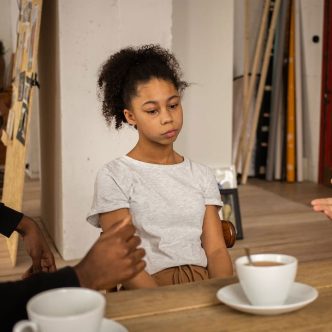Mediation – Legal Advice
In this series William Giles, the Mediator at Woollcombe Yonge, provides guidance as to how couples attending mediation can make the best of that mediation and give themselves the best possible opportunity to negotiate a settlement.
Legal advice
It is likely that the couple will have independently received legal advice concerning their issues. This is generally considered to be a good thing.
Indeed, during the mediation process the Mediator may well suggest that the couples obtain separate legal advice so they have an understanding of what their legal position would be in regard to any particular issue. This can often be helpful where an impasse has arisen about any particular legal aspect. However, please bear in mind that the application of the law is not necessarily precise. The parties’ Solicitors may have different views about the relevance of one or other aspect of the legal framework. It is usually the case that there are a range of legal solutions that will be reasonable for each particular case. It is well known, for example, that different Judges will make entirely different decisions based upon the same set of facts.
Your Solicitor’s advice will also depend upon what you have told them and they may not have full information about the other person’s views.
The couple’s Solicitors will advise them individually about what is in their best interests. Interestingly it may well be the case that if each party went to see the same Solicitor about the same problem (which of course you would not be allowed to do) you could very well receive different advice. In this way it is possible at times that Solicitor’s advice becomes a hurdle in reaching proposals.
Generally speaking it is very rare for Solicitors to attend any of the meetings and the advice is given away from the meetings. In particular, at the end of a matter when proposals have been reached by the couple, they will be sent with a Memorandum of Understanding setting out the agreement that has been reached and an open financial settlement setting out the financial information that has been considered, to be put to the Solicitors so they can provide legal advice and prepare any necessary Orders.
It is also important to note that whilst the Mediator can give legal information because the Mediator is neutral, that legal information must be provided neutrally and objectively. The Mediator is not there to advise the couple of their individual best interests as the Mediator is neutral and impartial. At times, where there are children involved, the Mediator may well bring a couple’s focus on to the best interests of the child(ren) rather than what they perceive as their own best interests.
William Giles is a Family Law Solicitor, Mediator and Collaborative Practitioner with Woollcombe Yonge Solicitors. Our mediation practice is known as WY Mediation. For initial free discussion with Will Giles please telephone him on (01752) 660384.
Similar stories

Navigating Legal Aid for Child Disputes

Navigating the Divorce Process: Choosing Between Divorce Solicitors, the Collaborative Process and Mediation

Family mediation – can my children be involved in child arrangements?

Do you need a lawyer or solicitor to get a divorce?

Everything you need to know about family mediation and how it works
Conveyancing client
"As a family we found the service provided to us was delivered with ’empathy’ and was in fact ‘outstanding’, we would most certainly recommend Woollcombe Yonge to friends.”
